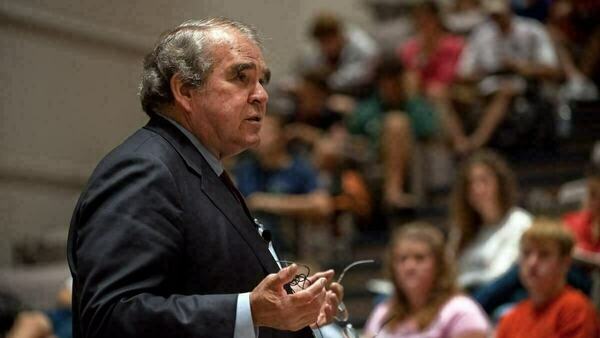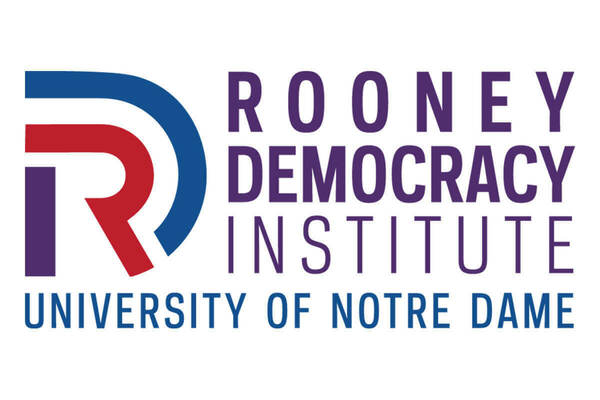ND experts offer insight on ‘Dilexi Te’
On Thursday (Oct. 9), Pope Leo XIV issued his first major document, “Dilexi Te” (“I Have Loved You”), addressed to all Christians and divided into five chapters. The document, which was signed on the feast day of St. Francis of Assisi (Oct. 4), was started by Pope Francis and completed by Pope Leo. It reiterates the Gospel call to respond to the needs of the poor, create more just and equitable social and economic conditions in the world and to heed the voices of those on the margins.
Below, experts from the University of Notre Dame’s College of Arts and Letters, Keough School of Global Affairs, Institute for Social Concerns and Institute for Educational Initiatives respond to the document.

Rev. Dan Groody, C.S.C.: A civilization of love
“As Pope Leo writes, ‘In every rejected migrant, it is Christ himself who knocks at the door of the community.’ Pope Leo challenges us to respond with compassion and courage. In a world building higher walls, he urges us to build longer bridges. In a world increasingly fragmented, he calls us to be a unifying presence. And in a world paralyzed by fear, he invites us to promote justice, foster solidarity and help build a civilization of love — one that reflects God’s love for all creatures.”

David Lantigua: A blueprint for authentic unity
“The exhortation is much needed in our divisive and polarizing times, where wealth has increased along with inequality,” Lantigua said. “It offers a profoundly biblical theology of poverty that recognizes both the evil of material poverty but also the saving power of voluntary poverty, both of which were embodied in Christ, the Church’s suffering founder.”

Suzanne Mulligan: A spotlight on increasing inequality
“A feature of ‘Dilexi Te’ is Leo’s insistence that the poor must be heard when it comes to social transformation. Local wisdom and the lived experiences of those on the margins ought to inform strategy. Moreover, human dignity is enhanced when people have a voice, when they have some say over their lives, and when their wisdom and lived experiences help shape public decision-making. After all, ‘the poor are at the heart of the Church,’ Leo tells us in ‘Dilexi Te,’ and so their participation is not only pragmatic but is also a way of affirming their dignity and sacredness.”

Jim Sullivan: ‘Love for the poor must move us to act — and to act wisely’
“Here at Notre Dame, we are called to cultivate a disciplined sensibility to the poverty, injustice and oppression that burden the lives of so many. And, as a research university, one of the ways we fulfill that calling is by working to create a world intolerant of poverty by expanding knowledge about how to solve it.”

Scott Appleby: Pope Leo takes on a new tone of urgency
“‘Dilexi Te’ is radical in that it goes to the very roots of Christian teaching, that compassion for and solidarity with the poor is the most direct path to communion with Jesus Christ, who ‘identified himself with the lowest ranks of society’ and thereby ‘confirm[ed] the dignity of every human being.’”

John Staud: The mission of Catholic education
“As we look to the future, Pope Leo’s words portend a renewed emphasis for his papacy on education, equity and formation. This document signals that the Church under his leadership intends to emphasize education as foundational to the Church’s mission, not as an optional ministry, but as a core form of service to the poor and to society. For those of us in Catholic education, we are called now to listen deeply, to act faithfully and to affirm the dignity of every child.”
Latest ND NewsWire
- Notre Dame’s Kellogg Institute partners with Vanderbilt University to launch 2025-26 democracy surveyThe University of Notre Dame’s Kellogg Institute for International Studies and Vanderbilt University’s Center for Global Democracy are partnering to advance one of the world’s leading surveys on attitudes toward democracy. Starting in October, the Center for Global Democracy, with support from the Kellogg Institute, will conduct the 2025-26 round of the AmericasBarometer, which tracks public opinion on democracy in 20 countries across the Americas.
- Notre Dame to award 2026 Evangelium Vitae Medal to Wm. David Solomon, founding director of the de Nicola Center for Ethics and CultureThe de Nicola Center for Ethics and Culture at the University of Notre Dame announced that the late Wm. David Solomon, associate professor of philosophy emeritus and founding director of the center, has been named the recipient of the 15th annual Notre Dame Evangelium Vitae Medal, the nation’s most important award for heroes of the pro-life movement. The medal will be presented to Solomon’s family at a special Mass and dinner May 1, 2026, at Notre Dame.
- Francis and Kathleen Rooney make transformative gift for Notre Dame institute focused on democracy research and educationFrancis and Kathleen Rooney of Washington, D.C., and Naples, Florida, have made a gift to the University of Notre Dame to endow an institute in the College of Arts & Letters committed to the preservation of American democracy through research, teaching and public engagement. The Rooney Democracy Institute, formerly known as the Rooney Center for the Study of American Democracy, aims to advance Notre Dame’s role as a national and global leader in democracy scholarship and as a convener of bipartisan conversations about the future of democracy.
- Researchers deconstruct chikungunya outbreaks to improve prediction and vaccine developmentThe symptoms come on quickly — acute fever, followed by debilitating joint pain that can last for months. Though rarely fatal, the chikungunya virus, a mosquito-borne illness, can be particularly severe for high-risk individuals, including newborns and older adults. While the virus is common…
- Eck Institute investigator to strengthen postpartum care for Indiana mothersYenupini Joyce Adams, associate professor of the practice and maternal health lead for the Eck Institute for Global Health at the University of Notre Dame, is partnering with Beacon Health System to pilot a new, first-of-its-kind postpartum care model in the South Bend-Elkhart community.
- Gen. Martin Dempsey to speak at Notre Dame Forum event on ‘Hope, Global Stability and the Role of the United States’Gen. Martin Dempsey, the retired 18th chairman of the Joint Chiefs of Staff, will join University President Rev. Robert A. Dowd, C.S.C., for a fireside chat at 4 p.m. Friday (Oct. 10), as part of the 2025-26 Notre Dame Forum. The discussion, titled “Hope, Global Stability and the Role of the United States,” is part of the exploration of this year’s Notre Dame Forum theme, “Cultivating Hope.” It will take place in Rooms 215/216 of McKenna Hall and will also be livestreamed. The event is free and open to the public.













